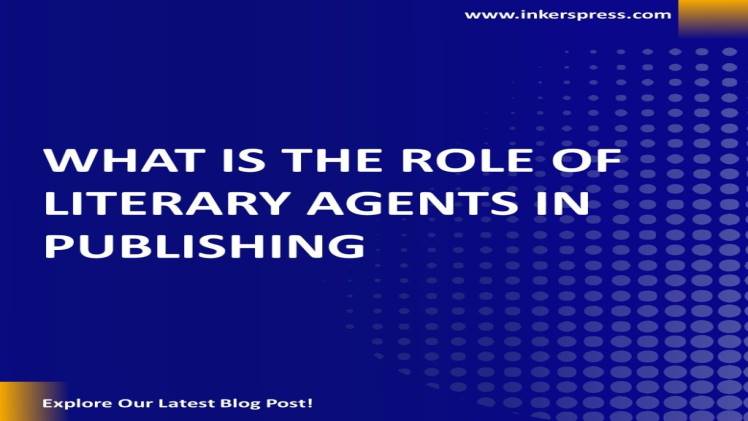
In the vast and often mysterious world of publishing, literary agents play a crucial role. They are the unsung heroes behind many of your favorite books, helping authors navigate the complex and competitive publishing landscape. If you’ve ever wondered what exactly a literary agent does and why they are so important, you’re in the right place. This article will break down the key aspects of a literary agent’s role in the publishing industry, shedding light on their responsibilities and the benefits they bring to both authors and publishers.
1. The Gatekeepers of Publishing
What is a literary agent? A literary agent primarily acts as the gatekeeper of the publishing world. They receive and review manuscript submissions from authors and determine which works have the potential to be successful in the market. This is a critical step because it saves publishers from being inundated with unsuitable manuscripts and allows them to focus on high-quality work that has already been vetted.
2. Navigating the Publishing Landscape
The publishing industry is a complex maze of publishers, imprints, editors, and bookstores. Literary agents have a deep understanding of this landscape and can guide authors through it. They know which publishers are looking for specific genres or themes, which editors might be a good fit, and the current market trends. This insider knowledge is invaluable to authors looking to get their work in front of the right people.
3. Professional Editing and Feedback
Once an agent takes on a manuscript, they often provide valuable feedback and editing suggestions to help the author improve their work. This can involve anything from structural changes to line-by-line edits. Literary agents have a keen eye for what publishers are looking for and can help authors fine-tune their manuscripts to increase their chances of getting published.
4. Pitching to Publishers
Perhaps one of the most crucial roles of a literary agent is pitching a manuscript to publishers. They craft compelling book proposals that highlight the unique selling points of the work and present it in the best possible light. Publishers are much more likely to pay attention to a submission from a reputable agent because they know the agent has already screened the manuscript for quality.
5. Negotiating Contracts
When a publisher expresses interest in a manuscript, it’s the literary agent’s responsibility to negotiate the best possible publishing deal on behalf of the author. This includes not only the financial terms but also the rights, royalties, and other contractual details. Literary agents have a vested interest in securing favorable terms for their authors, as their own income often depends on it.
6. Protecting Author Interests
A literary agent is like a guardian for the author in the publishing world. They ensure that the author’s rights are protected and that they receive fair compensation for their work. This is especially important when it comes to issues like copyright, foreign rights, and subsidiary rights.
7. Building Author-Editor Relationships
Establishing a strong working relationship between an author and an editor is vital to the success of a book. Literary agents often help foster this relationship, acting as intermediaries and ensuring that both parties are on the same page when it comes to the vision for the book.
8. Advocating for the Author
Literary agents are the author’s biggest advocates. They champion the author’s work, believing in its potential and doing everything in their power to get it in front of the right people. This advocacy can make a significant difference in an author’s journey to publication.
9. Marketing and Promotion
While marketing and promotion are usually handled by the publisher, literary agents can still play a role in helping authors understand the marketing plans for their book. They may provide advice on building an author platform and engaging with readers. The more successful a book is, the more successful the author-agent-publisher team becomes.
10. Long-Term Career Planning
A literary agent is not just concerned with getting one book published but with building an author’s long-term career. They help authors plan their writing trajectory and identify opportunities for growth and diversification within the industry.
11. Finding the Right Agent
If you’re an aspiring author, finding the right literary agent can be a game-changer in your publishing journey. Here are some steps to help you find the perfect match:
- Research Agents: Start by researching literary agents who specialize in your genre or type of writing. Many agents have specific preferences, so make sure your work aligns with their interests.
- Check Their Track Record: Look for agents with a proven track record of success. Agents who have helped authors secure publishing deals with reputable publishers are more likely to be effective advocates for your work.
- Follow Submission Guidelines: Each literary agent has specific submission guidelines. It’s essential to follow these guidelines to the letter. This demonstrates professionalism and respect for the agent’s time.
- Query Letters: Craft a compelling query letter that piques the agent’s interest. This is your opportunity to make a great first impression.
- Be Patient: Finding the right literary agent can take time. Rejections are part of the process, and persistence is key. Keep refining your work and your query letter and keep submitting.
- Consider Multiple Agents: It’s not uncommon for authors to query multiple agents simultaneously. Just be sure to inform agents if your work is under consideration elsewhere.
- Leverage Literary Agencies: Consider submitting your work to literary agencies, which may have multiple agents specializing in various genres. This increases your chances of finding the right fit.
12. The Author-Agent Relationship
The author-agent relationship is a unique partnership built on trust, communication, and shared goals. Here are some tips for a successful collaboration:
- Open Communication: Maintain open and transparent communication with your agent. Discuss your goals, concerns, and expectations.
- Trust Their Expertise: Remember that your agent has the experience and industry knowledge to guide you effectively. Trust their advice and recommendations.
- Patience and Realistic Expectations: Understand that the publishing process can be slow and uncertain. Be patient and have realistic expectations about the timeline and outcomes.
- Stay Informed: Keep yourself informed about the publishing industry and stay involved in the decision-making process. Your input matters, and an informed author-agent team is a powerful one.
- Celebrate Successes: When you achieve milestones, whether it’s signing a publishing deal or hitting bestseller lists, celebrate them together. Acknowledge your joint efforts.
13. The Changing Landscape of Literary Agents
The role of literary agents is evolving in response to changes in the publishing industry. Here are a few trends to be aware of:
- Digital Publishing: With the rise of digital publishing and self-publishing, some authors are choosing to forgo traditional publishing and literary agents altogether. However, many still find value in traditional publishing, as it provides access to broader distribution and marketing resources.
- Hybrid Authors: Some authors are embracing a hybrid approach, combining traditional publishing with self-publishing. In such cases, literary agents can help navigate the complexities of both worlds.
- Diversity and Inclusion: The industry is making strides toward greater diversity and inclusion in publishing. Many literary agents are actively seeking underrepresented voices and stories, making it an exciting time for authors from diverse backgrounds.
- Global Reach: Literary agents are increasingly helping authors expand their reach internationally, negotiating foreign rights deals and translations.
- E-books and Audiobooks: Agents are now dealing with a wider range of formats, including e-books and audiobooks. They are integral in securing deals for these formats.
Conclusion: The Unsung Heroes of the Publishing World
Literary agents are the unsung heroes of the publishing industry. They champion authors, guide them through the complexities of publishing, and work tirelessly to ensure their success. Whether you’re an aspiring author looking to find the right agent or a reader enjoying your favorite books, understanding the role of literary agents is essential to appreciating the intricate process of bringing great stories to the world. So, the next time you pick up a book, take a moment to appreciate the agent behind the scenes, helping talented authors share their stories with the world.




